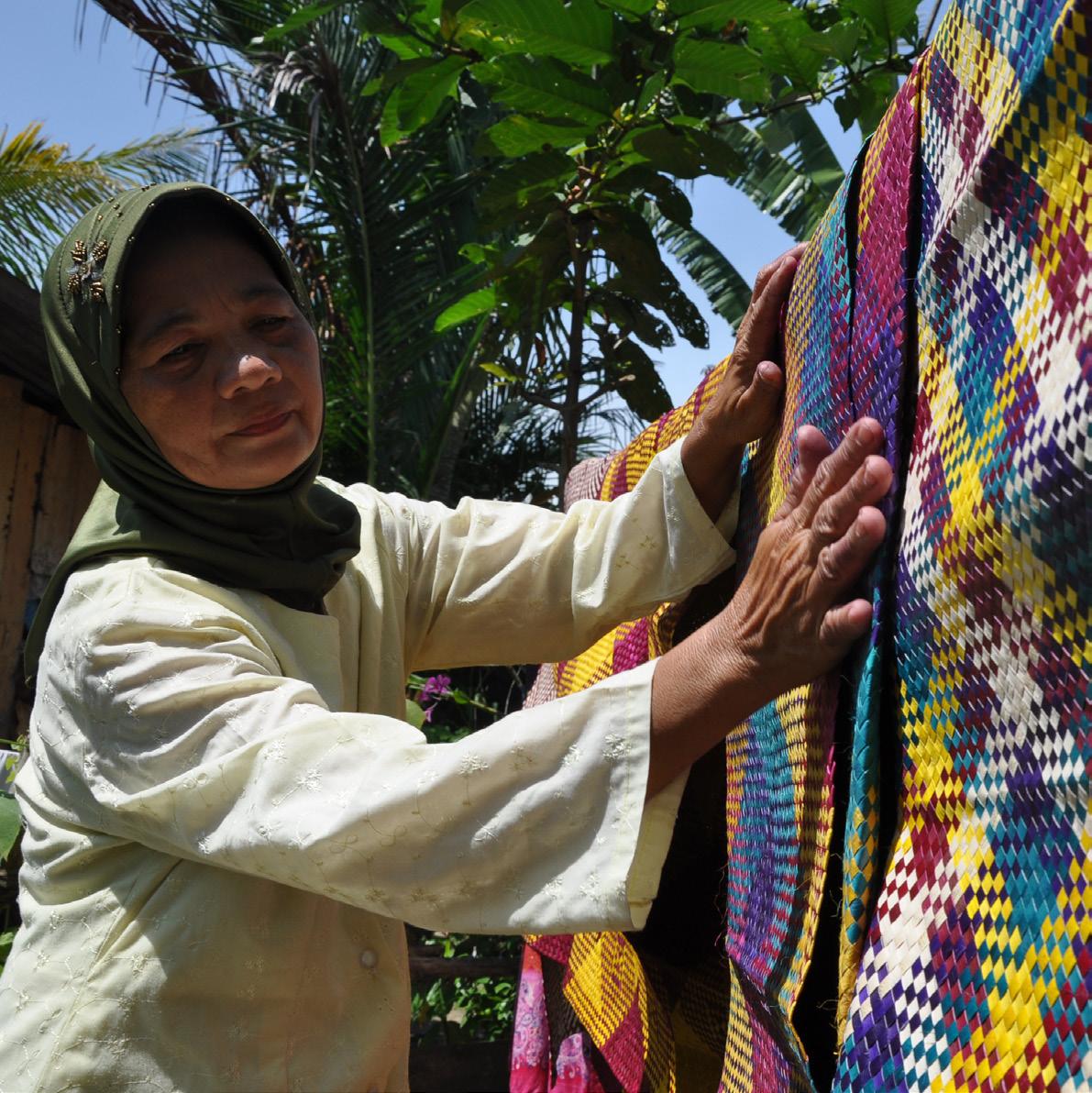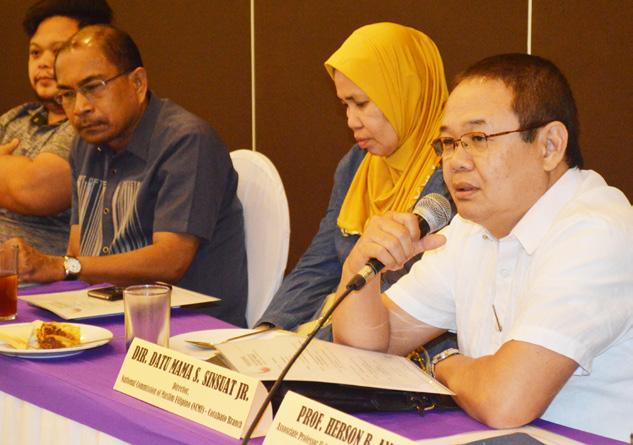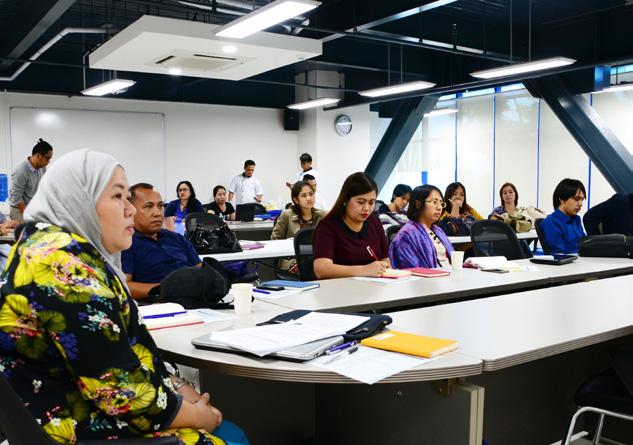
4 minute read
Policy Formulation and Advocacy
Barter Trade: Why It Matters
Freedom from the complexities of the modern monetary systems. Issues on international trade such as foreign exchange crisis and adverse balance of payments do not exist in the barter system.
Advertisement
Barter Trade facilitates commodity flow and provides economic opportunities to island provinces of Basilan, Sulu, Tawi-Tawi, and mainland Mindanao
Proximity to BIMPEAGA countries makes it strategic in terms of trade and commerce
Trade
MinDA facilitated the drafting of a Barter Trade Policy Study, including draft legal instruments in support to the issued Executive Order 64 Reviving Barter in Mindanao, and also created a Mindanao Barter Council (MBC).
The MBC is tasked to issue a comprehensive guideline on governing barter including identification of goods to be traded. The study aims to provide evidence-based recommendations to the MBC as basis for policy and decision-making for the succeeding barter trade agreements and operations.
Finance

Another milestone among the policies that MinDA has been supporting is the approval of Republic Act 11439 otherwise known as “An Act Providing for the Regulation and Organization of Islamic Banks” last August 22, 2019.


The legislative measure was a combined effort of the Technical Working Group (TWG) composed of various experts and stakeholders from the Bangko Sentral ng Pilipinas (BSP), AlAmanah Islamic Investment Bank (AIIB), National Commission on Muslim Filipinos (NCMF), Bureau of Internal Revenue (BIR), Mindanao Development Authority (MinDA), the Office of the Solicitor General, Philippine Deposit Insurance Corporation (PDIC), and the Office of the Regional Governor of then Autonomous Region in Muslim Mindanao (ARMM).

MinDA had been strongly advocating for a strong Islamic financial system in Mindanao, particularly in the Bangsamoro areas. A healthy Islamic financial system will facilitate the development of sukuk for Mindanao or known as Islamic bonds that are structured in such way that will generate returns to investors without infringing Shariah principles.
Consequently, this also complements the agency’s efforts to push for the development of Mindanao’s Halal industry.
Shift to a
The shift to a federal System of government which is the biggest reform advocacy of the Duterte Administration also gained support from the local government units with no less than Department of Interior and Local government enjoining all provincial, city, and municipal leaders to encourage barangay councils to adopt a resolution to express full and active support to the systemic shift to federal system.
The Sangguniang Panlungsod of Davao City and the Barangay Council of Callawa endorsed their respective resolutions, as well.

The DILG created the Inter-Agency Task Force to disseminate awareness campaign on the Constitutional Reform Advocacy to improve the nation’s competitiveness through stronger Local Government Units towards federalism.
MinDA as part of the Inter-Agency Task Force was present in all of the provincial roadshows to raise awareness on the DILG’s Constitutional Reform towards Federalism, in Compostela Valley on November 5-6, Davao Oriental on November 7-8, Davao del Norte on November 26-27, Davao Occidental on November 28-29, and Davao del Sur on December 3-4.
PICONG FREEPORT
International Container Port

Container Yards
PICONG HAJJ TERMINAL

Picong Freeport Hajj Terminal
500,000 square meters estimated size of the Picong Freeport with 70% area that can be developed. The freeport is envisioned to be the gateway and catalyst of economic activities in the North Western Central Mindanao.
400,000 square meters
is the indicative area of for the Picong Agro-Industrial Economic Zone with a developable land of about 280,000 square meters. It shall be classified as an agriculture-based industrial economic zone and will focus on the processing of agricultural and aquamarine products.
300,000 square meters
is the indicative area of for the Picong Hajj Terminal with 70% of it that can be developed. The airport will serve as the gateway for Hajj Pilgrims of Mindanao and of the Philippines.
The proposed establishment of a Picong Freeport Hajj Terminal and Agro-Industrial Zone (PFAEZ) got the support of key local officials and regional government agencies from Northern Mindanao and the Autonomous Region in Muslim Mindanao (ARMM), following the series of consultations conducted by MinDA. This was further strengthened by the local government resolution supporting the development.
The PFAEZ envisions an optimized logistics network within the Northern Mindanao and Bangsamoro Development Corridor which puts together in one location the international and domestic gateways, food processing, and manufacturing industries.
5,000
estimated Hajj Pilgrims come from Mindanao and spend around a total US$ 3 Million for transportation and accommodation in Metro Manila before flying to Saudi Arabia.
Trans-Mindanao
System Task Force
With the Trans-Mindanao High Speed Railway System as one of the flagship programs of MinDA since 2016, the agency provided inputs to the draft Executive Order creating the Mindanao Railways System Task Force to coordinate and accelerate the planning, project development and implementation of a Railway System Project in Mindanao.

The Economic Development Cluster of the National Economic Development Authority (NEDA) also favourably approved the Mindanao Budget study recommendations of MinDA, which includes the list of Mindanao Development Corridors (MinDC) catalytic programs endorsed to the Department of Budget and Management for funding consideration in the 2020 Government Appropriations Act.





